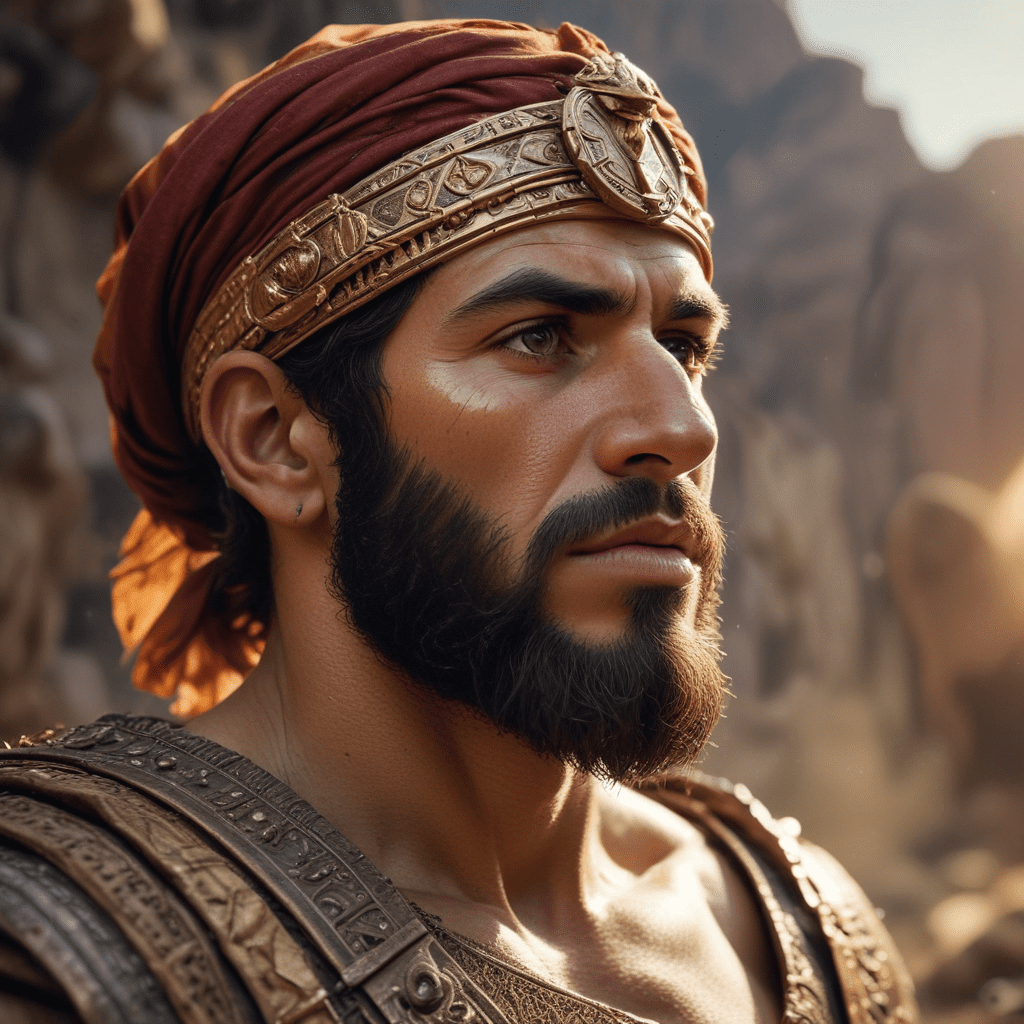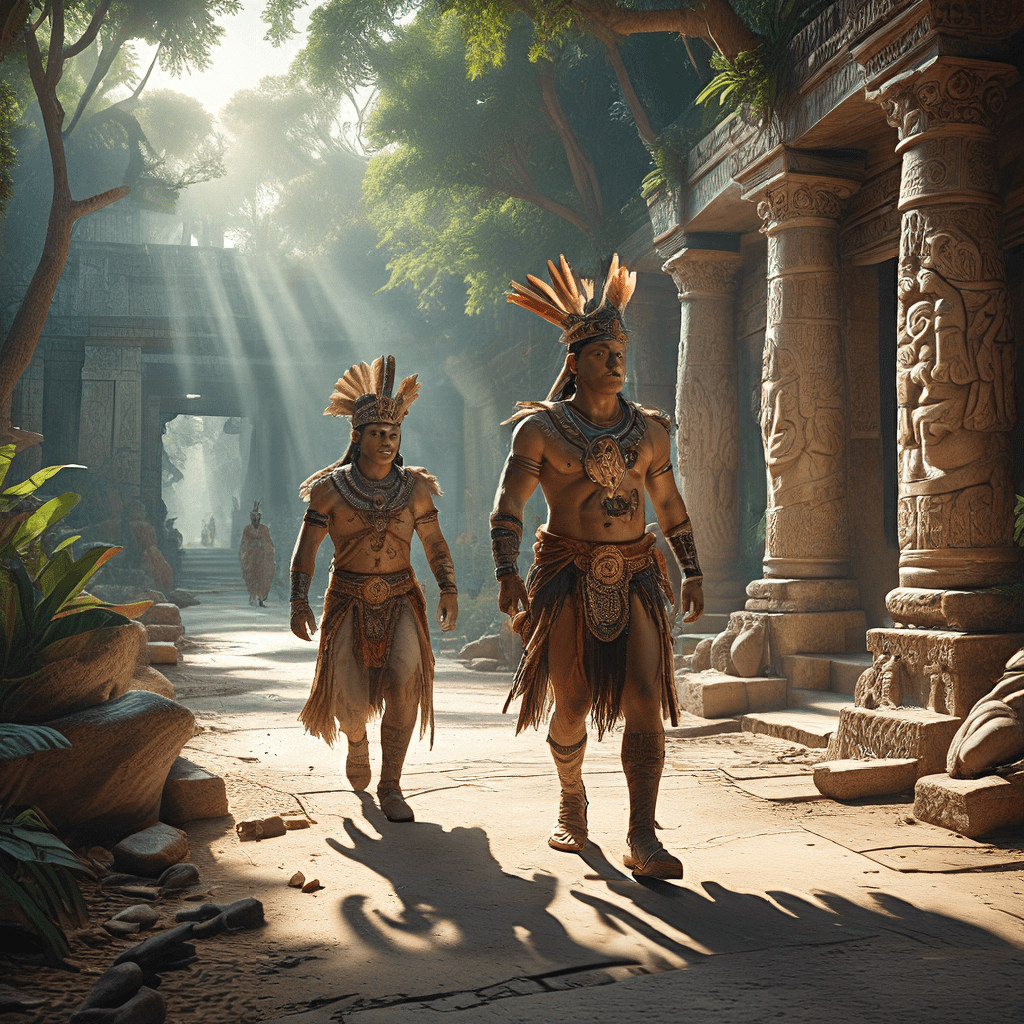I. Introduction:
Adapa: The First Man in Mesopotamian Mythology
Mesopotamian mythology, born from the fertile valleys of the Tigris and Euphrates rivers, boasts a rich tapestry of stories that have captivated humanity for millennia. Among these tales, the myth of Adapa, the first man, stands out for its profound exploration of human nature, mortality, and the relationship between humanity and the divine.
Adapa, crafted from clay by the god Ea, occupies a unique position in Mesopotamian mythology. He is not merely the first human being but also a figure who interacts directly with the gods, bridging the gap between the mortal and the divine. His story, passed down through generations, offers insights into the Mesopotamian understanding of fate, free will, and the consequences of human actions.
Through the lens of this captivating myth, we delve into the depths of Adapa's journey, exploring its significance within the Mesopotamian worldview and its enduring impact on human thought and storytelling.
VI. Legacy and Influence
Adapa's story has resonated through the ages, leaving an indelible mark on Mesopotamian culture and beyond. Its influence can be traced in various domains:
Later Mesopotamian Literature and Religious Beliefs: The Adapa myth served as a foundational narrative in Mesopotamian thought, influencing later literary works and religious beliefs. Echoes of his story can be found in texts like the Atrahasis Epic, which deals with the flood myth, and the Babylonian creation story, Enuma Elish. The concept of humanity's limited lifespan and separation from the divine realm, central to the Adapa myth, became deeply ingrained in Mesopotamian theology.
Comparative Studies of Mythology and Folklore: The Adapa myth has sparked scholarly interest in comparative mythology, revealing striking parallels with other ancient stories. The motif of the "lost paradise" and the consequences of human disobedience, for instance, finds echoes in the biblical story of Adam and Eve. Comparative analysis of such myths sheds light on shared human experiences and the universality of certain archetypal narratives.
Modern Interpretations and Adaptations: The Adapa myth continues to inspire contemporary artists and writers. Modern retellings of the story explore themes of human potential, the burden of knowledge, and the complexities of choice. These adaptations reflect the enduring relevance of Adapa's story in grappling with fundamental human questions.
VII. Conclusion
The myth of Adapa, the first man, offers a profound exploration of humanity's place in the cosmos. It delves into the complexities of human nature, the weight of mortality, and the ongoing tension between human aspirations and divine will. Through its enduring legacy, the Adapa myth continues to resonate with audiences across cultures and time, reminding us of the fragility of human existence and the enduring quest for knowledge and immortality.
VIII. FAQ
1. What are the main themes of the Adapa myth?
The main themes of the Adapa myth include:
- Humanity's mortality and the loss of paradise.
- The relationship between humanity and the divine.
- The Mesopotamian concept of fate and free will.
- Human pride and self-destruction.
2. How does the Adapa myth relate to other ancient myths?
The Adapa myth shares similarities with other ancient myths, such as the biblical story of Adam and Eve, the Greek myth of Prometheus, and the Sumerian myth of Enki and Ninhursag. These myths all explore themes of human disobedience, the acquisition of knowledge, and the consequences of human actions.
3. What is the significance of the Adapa myth in Mesopotamian culture?
The Adapa myth was a foundational narrative in Mesopotamian culture, influencing later literary works and religious beliefs. It reinforced the Mesopotamian understanding of humanity's limited lifespan and separation from the divine realm.
4. How has the Adapa myth been interpreted in modern times?
Modern interpretations of the Adapa myth explore themes of human potential, the burden of knowledge, and the complexities of choice. These adaptations reflect the enduring relevance of Adapa's story in grappling with fundamental human questions.



